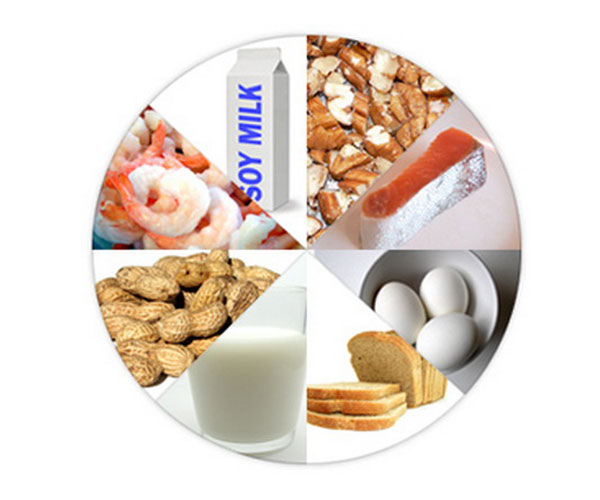
Most of us, who face food allergies, have to live under restricted diets. Foods which are susceptible of causing allergic reactions are removed from our regular diet. And, even though some foods are required to be excluded from our diet, it is not fully possible to eliminate them from our plates; especially those made of daily essentials, like wheat or milk. But there is no need to worry as our market sells substitute products for the allergy provoking foods.
Creating a food plan
The primary and foremost essential thing after one is being diagnosed for food allergy is to consult a doctor or dietician. A registered dietician may assist by either suggesting a proper and systematic food plan or by proposing substitute foods for replacing restricted food stuffs. One can also find oasis in an allergy-free cookbook that provides common food recipes omitting common allergen foods. Not only this, several health stores and grocery stores keep prepared allergen-free items, including ice bread and soy beverages. Even though it is a far-fetched task of staying away from allergen foods, doctors and physicians may provide medications to treat possible symptoms occurring from food allergies.
Significant points not to be missed
People suffering from wheat allergies are advised to consume spelt grain products. However, people having intense wheat allergies are most likely to react to spelt grains too. This is a harmful substitution and shouldn’t be used henceforth.
People who chose to eliminate particular offending foods from their plates are advised to maintain a proper balanced nutrition, rather than being too restrictive or harsh on their own selves. Sometimes excessive restriction causes food aversion that can result in eating disorders. Therefore, it is very essential to consult a physician or dietician for proper diagnosis and counseling as these factors act vitally in maintaining a nutritionally complete and healthy diet.
Avoiding accidental ingestion
Sometimes, in spite of imposing precautions, people inadvertently consume foods to which they are strongly allergic. This is more likely to happen when an allergic person is consuming food that is prepared by someone else. Or might be when the allergic stuff is not mentioned properly in the product label or if mentioned, the mention is so vague or indistinct that it is unable to express the ingredient.
People suffering from food allergies should take care of cleanliness appropriately. They need to understand that small pinch of offending foods resting in cooking pots, pans or utensils can cause contamination of other foods. To avoid such erroneous situations, people should make sure to wash their pre-used pots, pans and cookware properly with soaps and water in order to remove unwanted residues.
How to avoid allergy-provoking foods
1. Read all food product labels
Before you buy any food product, make sure that you had scanned the food label’s ingredients meticulously. Be careful about food products, especially those who list out hydrolyzed milk on their label. Hydrolyzed milk is basically a vegetable protein which is also found in tuna fish and hot dogs. This protein doesn’t suit people who are allergic to milk and milk products. Be extra conscious about checking labels of food products, even those products that you are very well familiar with as food manufacturers change ingredients constantly.
2. Ask about ingredients
While you are about to indulge in delectable treats, served in restaurants or at homes, be certain to ask whether the dish contains food stuffs that you are allergic with. And while you are sitting in a restaurant, make sure that the servers can answer your queries by communicating with the kitchen staff.
3. Ask about preparation
Ask the cook and figure out the food’s preparation process. For instance: if a food was cooked by using peanut oil, which sometimes is susceptible of high purification, can contain enough peanut protein to stimulate unwanted allergies in a peanut allergic person.
4. Don’t take a chance
Clear your food ingredients query with the restaurant’s server staff. If the server is unaware or less sure about the ingredients, direct your questions to the chef. He is the right person to help you out as he knows the nitty-gritty of the prepared food. Don’t eat the food without the certainty of the ingredients.
5. Protect your child
If your toddler is having food allergies, instruct your child’s caretaker about the particular foods your child must avoid. Also, see whether your child’s caretaker knows what to be done in a food reaction.
6. Carry your own food to parties
If you are a person with many food allergies, make sure you carry your own food box to parties. This pro-active step may shield you against unwanted allergic foods.




